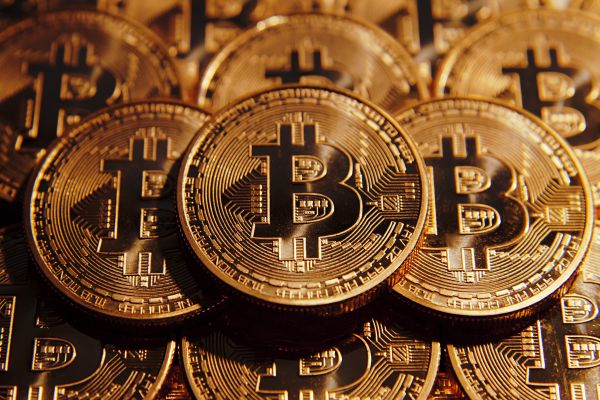Published on the 11/10/2017 | Written by Jonathan Cotton

Bit what? Coin who? What you need to know about the state of bitcoin, here and now…
In one of those curious moments when the digital pushes into the all-too-real, a bitcoin ATM machine has been launched in Sydney. It’s an interesting development – especially as traditional ATMs seem to be going the way of the telephone box – and it got us thinking: We talk, write and think about bitcoin on an almost daily basis here, but how well do we really understand the basics of what it’s all about? How it works? And most importantly, what can you do with it? Read on to answer all those burning questions and more. The basic basics Put simply, Bitcoin is a form of virtual currency used for electronic purchases and transfers. At its simplest, it’s ‘cash for the internet’, and you can use it pretty much as you would any other form of digital currency – buy stuff, sell stuff, send and receive money from your friends. Why is it a thing? That sounds a little strange, but it’s a real issue. Making sure that a dollar gets from point A to point B with no funny business in between is something banks go to a lot of trouble to ensure. Bitcoin is a way of doing such transfers – securely – without a bank involved. So how does bitcoin actually do that? Have I heard of this shared transaction database thing before? Blockchain lets digital information be distributed but not copied, making it perfect for financial transactions (there’s no ‘double spending’ problem when you can’t make a copy). Right now, smart people are getting very excited about the potential of blockchain technologies. It may just revolutionise society, the internet and the world. But in regards to bitcoin, the interesting part is this: it’s really transparent. Without disclosing the identities of the buyer or seller, the whole process is otherwise public – which means peace of mind for all parties when you’re dealing with big numbers. Open source at its finest. Sounds clever, but what’s so exciting about that? Why not just buy stuff with a credit card? Isn’t bitcoin the currency of choice for Russian hackers? There’s also a rather healthy speculative market growing and yes, some people are getting rich. Especially those who bought low and are selling now. How are they valued? There are currently just over 16.2m bitcoin in circulation and the maximum that will ever exist is capped at 21 million. As more people start to use bitcoin, demand is going up so it’s subject to the same economic laws as any other form of currency: scarcity, supply and demand. But still, why use it? The bank doesn’t do it for free of course. Use a credit card and the seller is likely to pay a fee somewhere in the realm of two to three percent per transaction. That gets expensive quickly, so many sellers see the benefit in accepting bitcoin payments purely for its economic advantage. Buyers like using bitcoin because there’s no limits, hidden fees or fees that can be imposed without the buyer’s consent. It also takes banks a few days to perform checks and balances. That’s why it takes a few days for a cheque to clear. Same thing with wire transfers. Bitcoin transactions take around 10 minutes, and in some cases are instantaneous. Also, there is no sensitive information that a hacker could steal from a merchant, there are no chargebacks and there’s no government that can take away your money if they don’t like what you’re doing (hence its appeal to Russian hackers). Sounds good in theory but is it actually worth the effort? All you really need is a bitcoin ‘wallet’, which is simply an app you load onto your phone/PC. That will provide you with an address’ (essentially an identifier code for your first transaction), and within a few minutes, you’re set up. You can then buy bitcoins through an exchange (of which there are hundreds), accept bitcoins if you’re a merchant (by sending a customer the above ‘address’), pay someone in a similar fashion, and trade bitcoins for more traditional currencies. How are people making money? There’s also money to made in ‘mining’. Remember those peers that make the whole shebang work? Well they’re also called ‘miners’. The reason for that is when one of those peers facilitates a transaction, they earn themselves a block of bitcoins for their trouble. With a set number of bitcoins these miners are ‘digging’ these coins out of the system. Only a fraction of all the bitcoins in the world have been mined thus far. There are also a ton of startups looking for ways to build on bitcoin and blockchain technology. You could even try gambling in a bitcoin casino if that’s your thing. Is bitcoin good for society? Both banks and governments, while initially hostile, are beginning to come around. Not China though – that nation has barred institutions from accepting bitcoin as payment. Japan and India are even indicating they may have a crack at developing their own cryptocurrencies. It’s a pretty strong boot in the pants for financial institutions to finally sort the appalling state of digital payment processes – and blockchain is almost certainly the technology they’ll use to do just that (as well as improve a whole lot of other capabilities as well). On the downside, yup, lots of potential for criminals to do criminal things – tax evasion, money laundering etcetera, but the from where we stand now, the most exciting thing is its potential – some people are saying that it’s going to have an impact on the world on par with the development of the internet, so there’s that at least. And about that ATM … Are buyers looking for AI features? Or is the reverse more true? It’s time for AI to go from low impact to big bang… Xero deals and MBIE and Aussie govt plans… Realities of Rise, SAP’s latest subscription model… Mercy Radiology’s $200k cash bonus from RPA…
First things first, what is it?
Financial transactions that take place digitally have a problem, known as the ‘double spending problem’, or the risk that a person making a payment could concurrently send a single unit of currency to two different sources.
Every bitcoin transaction is logged (in real-time) on a network of computers. This network keeps track of who’s got what bitcoins and serves as a very robust transaction log. Every single bitcoin transaction is logged on the network in real time. This is a transparent process – the audit trail is public – which keeps the whole thing as honest as the day is long (assuming it works right).
You sure have. By any other name you’d call it blockchain and it’s what bitcoin is based on.
The beauty of bitcoin is that it’s a peer-to-peer-based currency, and not subject to any centralised authority. There’s no middle man – financial institution or government – which can control the flow, impose rules or take a cut on the process. More on that in a minute.
It sure has been. Though bitcoins still have a little whiff of ransomware about them (and they do serve as a rather convenient way of receiving payments when you’re blackmailing someone), they are increasingly accepted by businesses looking for convenient forms of payment. WordPress and Reddit accept bitcoin now, with more businesses – even bricks and mortar stores in some instances – seeing them as a legitimate form of payment.
The value of a bitcoin is changing constantly in the same way as every other currency does, although there is no centralised exchange for it.
Remember that network of computers logging and verifying each transaction? Well, when you buy or sell something online using regular dollars and cents, that logging and verifying is carried out by a bank.
The bar to entry is about as low as it could be.
Just like a regular exchange, there is money to be made. Bitcoins started out being worth just a few cents each. They’re riding on an all-time high at the moment – radically rising over the last five weeks and currently sitting on US$4816 – with commentators predicting both continued surging and imminent collapse. (There’s the story of IT worker James Howells who threw away a hard drive containing 7,500 bitcoins only to find himself clawing through landfill trying to recover said drive when learning they were now worth $8.3m.)
It’s too early to tell, but so far so good. It’s a tool practically anyone can use that does some pretty amazing things.
Any Sydneysider with a bitcoin wallet can now buy the cryptocurrency at a bitcoin-specific ATM using Australian dollars. Why you’d want to isn’t quite clear (you could do it just as easily from your phone after all) but it’s a good sign that bitcoin – and related technologies – are entering the mainstream and it will be interesting to see how that plays out.FURTHER READING

The evolving role of AI in business technology

Stuff taking AI mainstream

E-invoicing: Because cashflow is king

Will local SAP customers Rise to cloud transition?

Switched on CEO: Dr McCann builds a bionic business



























